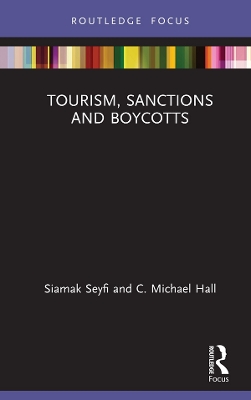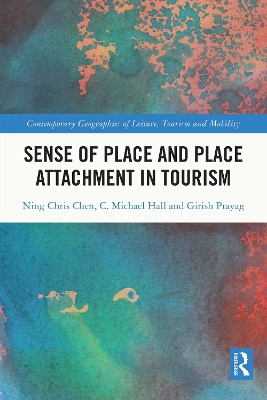Routledge Focus on Tourism and Hospitality
2 total works
This is the first book to provide a comprehensive account of sanctions and boycotts in tourism and the economic and ethical complexities that policy makers, tourists, tourism destinations, and businesses face.
Sanctions and boycotts are an important feature of the global tourism system and the emerging ethics of tourism. Sanctions and embargoes are increasingly used as coercive instruments of diplomacy and foreign policy by the United Nations, supranational organizations, the US, and other nations to change the actions and behaviors of countries, organizations, businesses, and individuals. At the same time, boycotts and buycotts are a growing feature of political consumerism and interest group activism. Tourism and hospitality destinations, attractions, and businesses can be profoundly affected by this, with the legacy of a negative image lasting for decades. International travel to some destinations may be severely restricted, financial investment and supply chains disrupted, and, in the most comprehensive sanctions and boycotts, substantial economic and personal hardship may be experienced.
This book is of interest not only to policy makers, destination management and marketing organizations, and students of crisis and politics in tourism and hospitality but also those who seek to address the interrelationships between sanctions, tourism destinations and attractions, and the tourists who boycott them.
Sense of Place and Place Attachment in Tourism
by Ning Chris Chen, C. Michael Hall, and Girish Prayag
Place is integral to tourism. In tourism, almost all issues can ultimately be traced back to human–place interactions and human–place relationships. Sense of place, also referred to as place attachment, topophilia, and community sentiment, has received significant attention in tourism studies because it both contributes to, and is affected by, tourism.
This book, written by notable authors in the field, examines sense of place and place attachment in terms of a typology of sense of place/place attachment that includes genealogical/historical, narrative/cultural, economic, ideological, cosmological, and dynamic elements. Dimensions of place attachment such as place identity, place dependence, and affective attachment are discussed as well as place marketing, place making, and destination management.
Complete with a range of illustrative international cases and examples ranging from Santa Claus to the importance of place in indigenous and traditional cultures, this book represents a substantial addition to knowledge on the inseparable relationship between tourism and place and will be of great interest to all upper-level students and researchers of Tourism.

